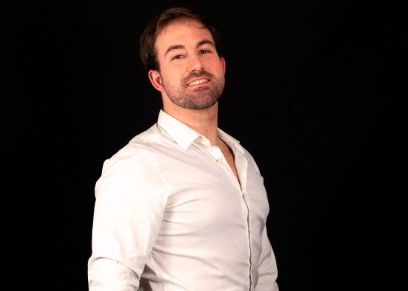Pablo Plaza

Profile
Voice type
Tenor
Nationality
Spain
Website
pabloplazatenor.wixsite.com/pabloplazatenor
Current studies
Master Specialized Music Performance Opera, Swiss Opera Studio, Bern Academy of the Arts
Vocal coach
Marcus Niedermeyer
Former musical studies
- 2021–2024: Bachelor's degree in singing, Haute ècole de musique, Geneva, Switzerland
- 2013–2021: Diploma in singing, Conservatorio profesional Arturo Soria, Madrid, Spain
- 2007–2012: Piano Diploma, Conservatorio profesional Joaquín Turina, Madrid, Spain
CV
Biographiy:
Pablo Plaza is a Spanish tenor who began his musical training in piano and violin, under Ana Benavides and Otilia Fidalgo before focusing on singing with Roberto Mallorquín and Clémence Tilquin. After starting his career in musical theater in Madrid with productions like Young Frankenstein, he continued his vocal studies in Geneva.
His roles include Florival in L'amant Jaloux, Sancho in Don Quichotte chez la duchesse, Albazar/Narciso in Il Turco in Italia, and Peter Quint in The Turn of the Screw.
Pablo is currently a member of the Opera Studio Biel/Bienne (2024–2026), where he works with Marcus Niedermeyer, and is preparing Almaviva in Il barbiere di Siviglia for the Opéra de Bordeaux in February 2025. He also collaborates with the Grand Théâtre de Genève and the Opéra de Lausanne as a chorister.
Awards:
Throughout his studies, he has received the Excellence Scholarship. In addition he earned in 2023 the third prize at the Concours de Béziers and reached the finals and semifinals of Concurso Opus Lírica, Concorso di Bellano and Concurso Lírico de Luosada.
Interview: Three questions for Pablo Plaza
Why are you studying opera?
I was introduced to Zarzuela, a Spanish genre of operettas, at a young age – and it sparked my love for singing and music. I also believe that there is still a lot to do in opera in terms of racial and gender integration. And I hope that one day I can contribute to changing its often elitist character and perhaps even perform a Zarzuela on a major European stage.
What was your first encounter with opera?
As I mentioned before, it was through Zarzuela, when I was young. My school took me to see Doña Francisquita at the Teatro de la Zarzuela, and I fell in love, especially with the romanza Canciión del Ruiseñorof the soprano.
Which is your favourite opera and why?
You could mention any opera by Puccini and I would agree, but once again, I'm going to lean towards the culture of my country and say that La Tabernera del Puerto by Sorozábal is my favorite Zarzuela. In addition to the iconic aria No puede ser, the piece En un país de fábula is incredible – its music flows like a mother telling a story, with such warmth and tenderness that it feels like being enveloped in a comforting, timeless tale.

